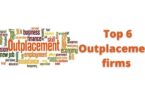
The dawning horizon of the 2030s is not just a mark of another decade but also a symbol of the rapidly transforming professional landscape. As we find ourselves on the precipice of a world driven by automation, artificial intelligence, and groundbreaking technologies, it becomes indispensable for professionals not merely to react to these shifts but to pre-emptively anticipate and adapt to them.
Similarly, the world of forex markets offers individuals a dynamic environment to sharpen their strategic and risk-management skills. Platforms like www.trusted-broker-reviews.com become invaluable in navigating such intricate terrains. The evolving job market demands a fine-tuning of certain skills to stay ahead of the curve.
The top skills experts envisage as paramount for the 2030 job market include:
- digital literacy,
- emotional intelligence,
- critical thinking,
- flexibility and adaptability,
- complex problem solving,
- interdisciplinary knowledge,
- cultural awareness and global perspective,
- collaborative teamwork,
- sustainable and ethical decision-making,
- lifelong learning.
Let us dive deep and dwell on each skill in this post.
#1. Digital Literacy
In today’s rapidly evolving digital age, the concept of literacy has expanded beyond traditional reading and writing to encompass a broader range of competencies. At its core, digital literacy represents the ability to locate, understand, evaluate, create, and communicate using digital technologies. But it goes far beyond just the ability to use a computer or smartphone.
- Understanding Digital Tools: Being digitally literate means having a grasp of the wide array of digital tools available and understanding how to use them efficiently. This includes everything from word processors and spreadsheets to social media platforms and digital design software.
- Safety and Security: Digital literacy also entails being aware of the risks associated with digital tools, such as cybersecurity threats. This awareness involves understanding how to protect one’s data, recognizing potential online scams, and using digital resources responsibly.
- Communication: In our interconnected world, communication happens more and more through digital channels. Thus, understanding the nuances of digital communication, from crafting emails and using social media responsibly to engaging in virtual meetings, is a vital component of digital literacy.
- Critical Evaluation: The internet is rife with information, but not all of it is trustworthy. Digital literacy imparts the skill of critically evaluating the available content. This means discerning reliable sources from dubious ones, recognizing biases, and understanding the context of digital information.
- Content Creation: Beyond consumption, digital literacy includes the competency to produce and share digital content. Whether it’s writing a blog post, creating a video, designing a digital graphic, or coding a basic website, these skills are becoming increasingly valuable in many professional fields.
- Ethical Use: The digital world is also governed by unwritten codes of conduct. Understanding the ethical implications of actions, such as crediting sources, respecting digital rights, and acknowledging privacy concerns, are integral to being a responsible digital citizen.
#2. Emotional Intelligence (EQ)
Emotional Intelligence (EQ), often equated with interpersonal acumen and the ability to understand and manage emotions, is rapidly emerging as a pivotal skill in the modern job market. The emphasis on EQ in the workplace is anticipated to grow substantially, driven by numerous factors.
What is EQ?
Emotional Intelligence is the capability to recognize, comprehend, manage, and effectively use emotions in ourselves and others. It encompasses skills such as empathy, self-awareness, self-regulation, motivation, and social skills. The key components of EQ are:
- Self-awareness: Recognizing and understanding one’s own emotions, strengths, weaknesses, drives, values, and goals – and their impact on others.
- Self-regulation: Managing and controlling disruptive emotions and impulses, and adapting to changing circumstances.
- Motivation: Being driven to achieve purely for the sake of achievement, not just for external rewards.
- Empathy: Understanding the emotions of others, discerning what they might be thinking or feeling, and cultivating a genuine interest in their concerns.
- Social Skills: Managing relationships to get along with others, using effective communication, and building networks.

The importance of EQ in the modern world and in the future
- Complex Problem Solving: Emotionally intelligent individuals can navigate difficult situations, understanding the emotional underpinnings of challenges and integrating emotional cues into their decision-making processes.
- Enhanced Teamwork: As teams become more diverse and global, EQ becomes paramount to bridge cultural and personal gaps, ensuring seamless communication and collaboration.
- Leadership: Emotionally intelligent leaders inspire, guide, and resonate with their teams, leading to better morale and productivity.
- Customer Relations: In a world where customer-centric approaches dominate, understanding and catering to the emotional needs of clients can be a game-changer.
- Conflict Resolution: EQ equips individuals with the tools to address conflicts constructively, transforming potential sources of tension into opportunities for growth.
#3. Critical Thinking
In our modern world, flooded with information and often misinformation, critical thinking is an essential skill. It empowers individuals to navigate the complexities of today’s society, making informed decisions, challenging the status quo, and driving innovation and progress. Cultivating critical thinking isn’t just beneficial for academic or professional settings; it’s a valuable life skill that aids in understanding the intricate web of our globalized world.
#4. Flexibility and Adaptability
Change is the only constant, and this aphorism has never been truer. With industries and roles constantly metamorphosing, flexibility and adaptability are vital. Those receptive to learning and unlearning, adapting to new technologies, and switching roles will be in high demand.
In the evolving landscape of the 2030 job market, rigid job descriptions and traditional roles will likely become obsolete, making way for dynamic responsibilities that require a versatile skill set. As technological disruptions continue to redefine industries, employees who can readily reskill and upskill will be invaluable assets.
Moreover, with the increasing prevalence of remote and hybrid work models, professionals must adapt to varying work environments and communication tools. In a globalized economy, adaptability also means understanding and integrating diverse cultural nuances, ensuring effective collaboration across borders.
#5. Complex Problem Solving
In an era characterized by rapid technological advancements, shifting global dynamics, and unprecedented challenges, our approach to problem-solving must be multifaceted and versatile. Complex problem solving is not just about addressing issues head-on, but rather diving deep into their intricate layers, understanding their nuances, and finding innovative pathways towards solutions.
- Understanding the Problem’s Depth: Before any solution can be considered, a comprehensive understanding of the problem is paramount. This involves dissecting the issue, acknowledging its various facets, and recognizing the underlying causes rather than just the evident symptoms.
- Adaptive Learning: The landscape of problems we face is constantly evolving, which means that the solutions of yesterday might not be effective today. Complex problem solvers are committed to continuous learning, ensuring they have the most up-to-date knowledge and tools at their disposal.
- Collaborative Approach: Given the intricacy of today’s challenges, collaboration is often key. Bringing together diverse minds and perspectives can lead to a richer understanding of the problem and more comprehensive solutions. Complex problem solvers value teamwork and understand the strength of collective intelligence.
- Innovative Thinking: More than ever, there’s a need for out-of-the-box thinking. This doesn’t mean abandoning traditional methods entirely but complementing them with fresh, innovative approaches. By challenging the status quo and being willing to experiment, we can discover novel solutions to age-old problems.
- Systematic Thinking: Many of today’s challenges are systemic, meaning they are part of a larger, interconnected system. Professionals skilled in complex problem-solving recognize these interconnections and can devise solutions that address the issue holistically, rather than in isolation.
- Resilience and Persistence: Given the complexity of the challenges faced, not every solution will work on the first try. Resilience is crucial. Being able to adapt, learn from failures, and persistently work towards a solution is a defining trait of an effective problem solver.
- Ethical Consideration: It’s vital to ensure that solutions not only address the problem but also do so ethically. Complex problem solvers weigh the moral implications of their solutions, striving for outcomes that are beneficial and just.
Read Also: Is Military/Government/Technical A Good Career Path? | Full Guide
#6. Interdisciplinary Knowledge
Silos are becoming obsolete. Interdisciplinary knowledge refers to integrating insights from diverse fields. A technologist who understands psychology or a biologist proficient in data science is more likely to drive innovation and offer holistic solutions.
This multifaceted approach to knowledge fosters creativity, as solutions can be crafted from a broad palette of expertise rather than a single, narrow perspective. It also better equips professionals to address the complex, intertwined challenges of the modern world, which often don’t fit neatly into one discipline.
Moreover, with rapid technological advancements, the convergence of different fields is becoming more pronounced, amplifying the demand for interdisciplinary expertise. Institutions, recognizing this trend, are increasingly offering interdisciplinary programs, emphasizing the importance of a diverse knowledge base for future professionals.
#7. Cultural Awareness and Global Perspective
The world is a global village. Professionals need cultural awareness to navigate this multicultural workspace. Understanding varying cultural nuances and possessing a global perspective can facilitate better communication, collaboration, and business success.
#8. Collaborative Teamwork
In the interconnected world of the 21st century, collaborative teamwork has risen as a vital skill, and by 2030, it will be paramount in navigating the complexities of global and digital work environments.
Definition
Collaborative teamwork refers to the process where individuals, potentially from varied backgrounds and perspectives, come together to work towards a shared objective. It’s not just about working together but doing so in a manner that leverages each individual’s strengths, knowledge, and capabilities to produce outcomes superior to what any single member could achieve alone.
Components of collaborative teamwork
- Diverse Skillsets: Effective teams often comprise members with diverse skills, knowledge, and perspectives. This diversity fosters innovative solutions to complex challenges.
- Open Communication: Transparent and open communication is crucial. Team members should feel comfortable sharing ideas, raising concerns, and providing feedback without fear of retribution.
- Trust: A foundation of mutual trust ensures that team members can rely on one another, be vulnerable in expressing their thoughts, and believe that everyone is working in the team’s best interests.
- Conflict Resolution: Disagreements are natural in teams. Effective collaborative teams have mechanisms in place for constructive conflict resolution, ensuring disagreements become opportunities for growth rather than sources of division.
- Shared Goals and Vision: Every team member should understand and buy into the team’s objectives. This shared vision helps guide decision-making and keeps the team aligned.
Teamwork: The importance in the modern world
Remote work
As the world has seen an upsurge in remote working scenarios, the ability to collaborate over digital platforms and bridge time zones is more essential than ever.
Interdisciplinary challenges
Many of today’s most pressing problems, from climate change to technological innovation, require interdisciplinary solutions. Teams with varied expertise collaborating effectively can generate these solutions. Therefore, it is crucial to develop these skills, both at the personal and at the team level.
Rapid technological change
The pace of technological change means teams need to adapt quickly. Collaborative teams can pool their collective knowledge to stay updated and relevant. And every successful person needs to be able to adapt really quickly.
Globalization
Businesses are increasingly global, and working with team members from different cultural, linguistic, and professional backgrounds is a norm. Collaborative skills help bridge these differences and turn them into assets.
Enhancing Collaborative Teamwork
To foster better collaborative teamwork, organizations can invest in training sessions that focus on soft skills like communication, active listening, and empathy. Team-building activities, both virtual and physical, can help in building trust and camaraderie. Moreover, investing in tools and technologies that facilitate smoother digital collaboration can also be instrumental.
#9. Sustainable and Ethical Decision-Making
The business lexicon now resonates with sustainability and ethics. Sustainable and ethical decision-making emphasizes the long-term impacts of decisions on the environment, society, and business itself. Organizations championing these values are poised for long-term success, hence the demand for such professionals.
#10. Lifelong Learning
A degree is no longer the end of education; it’s just the beginning. Lifelong learning is about consistently upgrading and acquiring new skills. Professionals committed to continuous learning, be it through courses, workshops, or self-study, will always remain relevant.
Final Say
Much like the forex markets, where success comes to those who diligently analyze, strategize, and adapt to the volatile environment, the future job market demands a unique set of skills. It beckons those ready to evolve with it, preparing them for the uncertainties of tomorrow. As the sun rises in the 2030s, it will shine brightest on those who have future-proofed their careers with these skills, ensuring not just relevance but dominance in their respective fields.






